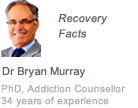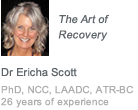Benzodiazepine Addiction
Benzodiazepine addiction is found all around us, in all walks of life and all cultures, but mainly in conjunction with other drugs – the so-called Poly-Drug addicts. The street name for these drugs are ‘Benzos’ but they are often traded as specific drugs for particular effects that are attractive to addicts.
Benzodiazepine include such drugs as Temazepam, Diazepam, Alprazolam, along with around 35 other drugs that include well-known brands including Librium, Valium, Xanax, Nobrium or Doral. The drugs are psycho-actives and are typically prescribed as anti-anxiety, sleep-inducing, anti-depressant or anticonvulsants and are often used as treatment for Parkinson’s disease and alcoholism.
They have been recognized as having dangerously addictive qualities for many years and in the main are closely controlled when prescribed, but a large dependant community has grown up from non-prescribed use.
Benzodiazepine – origins and legal status
The first benzodiazepine was discovered by accident in Switzerland in 1955 by Leo Sternbach and marketed in the early 1960’s by Hoffman-Laroche. The first to be marketed was chloradiazepoxide under the name of Librium and the same company later marketed diazepam under the brand name of Valium. They were initially prescribed in the treatment of:
- Agitation or Anxiety
- Sleep disorders
- Twitching or muscle spasms
- Alcohol withdrawal
- Pain relief and cessation
And have since been commonly offered for various psychiatric disorders.
The prevalence of benzodiazepine addiction among its users has shaped the legal status of these drugs. The situation is complex as different drugs – 35 different strains – are scheduled differently depending on the country or even state concerned.
In general they are Schedule 4 in the United States, so they can only be supplied through a licensed pharmacy and can only be prescribed by a licensed doctor but that there is no penalty for simple possession. In the UK they are a Class ‘C’ drug – possession without a prescription is liable to prosecution
Benzodiazepine: dependencies and addiction
Benzodiazepine addiction can be split into two different forms:
- Physical dependency
- Illicit addiction
Benzodiazepins have severe dependency problems because the drugs are often used to relieve underlying problems and may be prescribed on a long-term basis. Under these circumstances it is usual for prescribers to move the patient from one form to another to try and avoid building a benzodiazepine addiction. Unfortunately this is not always successful as patients may find that they only respond well to a particular form of benzodiazepine and in the considered opinion of the doctor may suffer less from the dependency than from the problem that the drug is relieving. These are the majority of addicts to benzodiazepines, but there are also determined groups who take the drug with no prior prescription. In these cases the drug may be used to avoid withdrawal symptoms from another form of addiction or simply for the experience of getting high on the drugs.
The withdrawal symptoms from benzodiazepines can be devastating for the addict and prescribers trying to manage the patient and keep control on patterns of use to try and avoid the worst of the withdrawal symptoms. Withdrawal symptoms for Benzodiazepines include:
- Anxiety
- Confusion
- Depression – occasionally suicidal
- Self harm
- Gastrointestinal issues
- Muscle spasms and cramps
Recognizing and treating benzodiazepine addiction and addicts
Benzodiazepine addicts often show an inability to cope without the drug and will display signs of withdrawal if their use is stopped but otherwise there are few outward signs as the drug itself is helping the patient present a ‘normal’ face to the world.
The majority of people suffering with a benzodiazepine addiction desperately want to rid themselves of the drug and its addiction. But they will need a great deal of help with the emotional as well as physical symptoms of withdrawal. Counseling and other psychological therapies are often of great help in aiding the addict to understand the pain that they are feeling and to address underlying and perhaps previously hidden causes that led to them being prescribed the drug in the first place. Meditation disciplines can help people to focus and heal spiritual trauma, and also distract from the physical discomfort of withdrawal. Acupressure has often been seen to be useful, especially for the anxiety that is a major side-effect of the withdrawal treatment.
Other aspects that may help greatly are:
- Daily exercise
- Breathing exercises to help management of the anxiety
- Regular sleep and stable conditions
- Magnesium supplements
There are also a number of herbal and complementary treatments that may help to ease the symptoms:
- St John’s Wort
- Lavender Tea
- Camomile either in balm or tea
- Kava Kava
- Motherwort
Taking any supplement should be discussed with medical supervisors to ensure that there are no contra-indications that might cause physical problems. Peer group discussion, support from both professionals and family and friends are all cornerstones of successful recovery. An holistic approach to those who have been prescribed benzodiazepines over a long time, perhaps for many years, is particularly appropriate because the drugs will have been prescribed to treat symptomatically and the hidden issues may have been totally overlooked.
Dealing with benzodiazepine addiction takes courage and strength, but it can be done. The only thing stopping a successful recovery is not starting a programme of treatment and sustained recovery, so make the call to your physician and get started.












